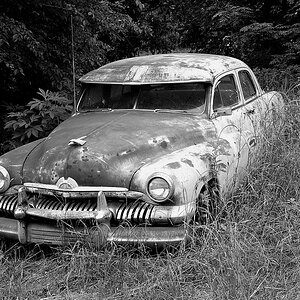KenC
Been spending a lot of time on here!
- Joined
- Jan 18, 2010
- Messages
- 5,700
- Reaction score
- 1,472
- Location
- Philadelphia
- Can others edit my Photos
- Photos NOT OK to edit
There seems to be a theme here, expressed at least to some extent by many who've posted here, that an image should stand on its own and one that evokes more feeling or reaction with a title or text or other supplied context (aside from what the viewer brings - cultural symbolism, etc.) is somehow a lesser image. I have two problems with this: (1) there is always a context supplied with the photo - whose photo it is, how it is presented or shown, etc. (I know some who've commented on here have mentioned this), and (2) sez who??? - any one of us can have an opinion on this, but what difference does it make? If someone defines what a good image is, and they create one that does not fit their own definition, are they then obliged to trash it? If they see an image made by someone else that does not fit their definition, yet their initial response to it is positive, do they have to pretend they don't like it to be self-consistent?


 My horse may not be modern but it is much more "professional" and more "experienced" by decades than yours.
My horse may not be modern but it is much more "professional" and more "experienced" by decades than yours.











